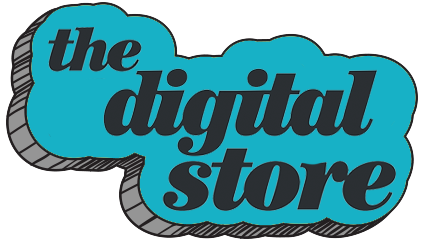7 KEY TRENDS AHEAD IN 2017

7x DNA team members share the top trend on their watchlist for 2017.
The new year is nigh, and Buzzwords aside, we have put together a range of predictions on what lies ahead for your business, that may change your priorities, challenge your current strategy, or maybe just confirm what you’ve been thinking.
In our view, we’ll see Primary sector transformation through the innovation of digital services. The 'People First' design of services will be embraced in every sector, as it's clear the digital age has put the consumer in charge.
In addition, there are building trends which pose risk and offer opportunity to New Zealand businesses, such as truly connecting empathy and data, the spectre of digital labour and of course, the internet to things and services.
Here are seven trends on DNA’s radar:
Talent and autonomy.
Young talent is critical for innovation. Youth need autonomy to flourish and feel valued. Youthfulness needs structure to be useful. Innovative organisations need to develop the muscle to balance talent and autonomy which means they have to accept abandoning traditional methods of management and hierarchical structures. The merging of agile practices and design mindsets is the future.
Matt McKendry _ Chair of DNA, BBD Coach, Investor, Independent Director and innovation junkie.
Services over content.
Now that most websites have moved to responsive, companies will focus more on how to serve their customers better through services rather than just content. This will also have a roll on effect into how analytics are used and reported on in order for companies to maximise effect from their digital investment.
John Milmine _ DNA Technical Director.
Innovation and governance.
In NZ we’ll see incremental and sustainable innovation rather than big bang disruptive 'INNOVATION'. All organisations are at risk if they are now not continually evolving and improving – incremental and sustained innovation provides a positive pathway to change. This should lead to innovation being owned at the Board table. We’ll see 'not being innovative' as an identified risk at Board level.
Steve Maskell _ DNA Principal / Experience Design Director.
Customisation of experiences.
The age of Information Architecture is waning and what we’re left with is an internet clogged with dense un-navigable websites, which no-one has the time or inclination to deal with. What comes next is a shift towards the customisation of experiences in order to take people on focused, contextually relevant journeys. What this requires is for businesses to look outward, not inward… to care about those that touch their information systems and to take on the complexity through smarter design – to ensure their customers don’t have to.
Charlene Turei _ Interaction Design Director.
Innovation needs to ship.
More innovation roles and teams will spring up in organisations big and small. As these teams try to figure out how to deliver innovative products, services and solutions that ship, we will see design methodologies and practices become more integrated with other disciplines and fields of work. We will also continue to see many of those teams fail and disband when organisations fail to realise the cultural and organisational shifts they need to make to let innovation talents and efforts flourish.
Nico Neethling _ Experience Innovation Director.
Delivery still matters.
As innovation and design thinking continue to gain traction within businesses and become conversations at an Executive level, there will still be a need to programatically and systematically execute, measure and iterate. Many businesses will innovate sustainably (make what they have better), meaning delivery will continue to be a theme, just as it has been over the last few years.
Lee Tucknott _ Digital Strategy and Product Director.
Locally and culturally.
The desirability of, and confusion around design thinking will continue into 2017, and there will be a concerted focus on reframing the Silicon Valley model to being more locally and culturally relevant. This will particularly present itself in the social sector, where indigenous knowledge and perspectives continue to be intertwined with design approaches.
Chris Jackson _ Service Innovation Director.
Ref: dna.co.nz
